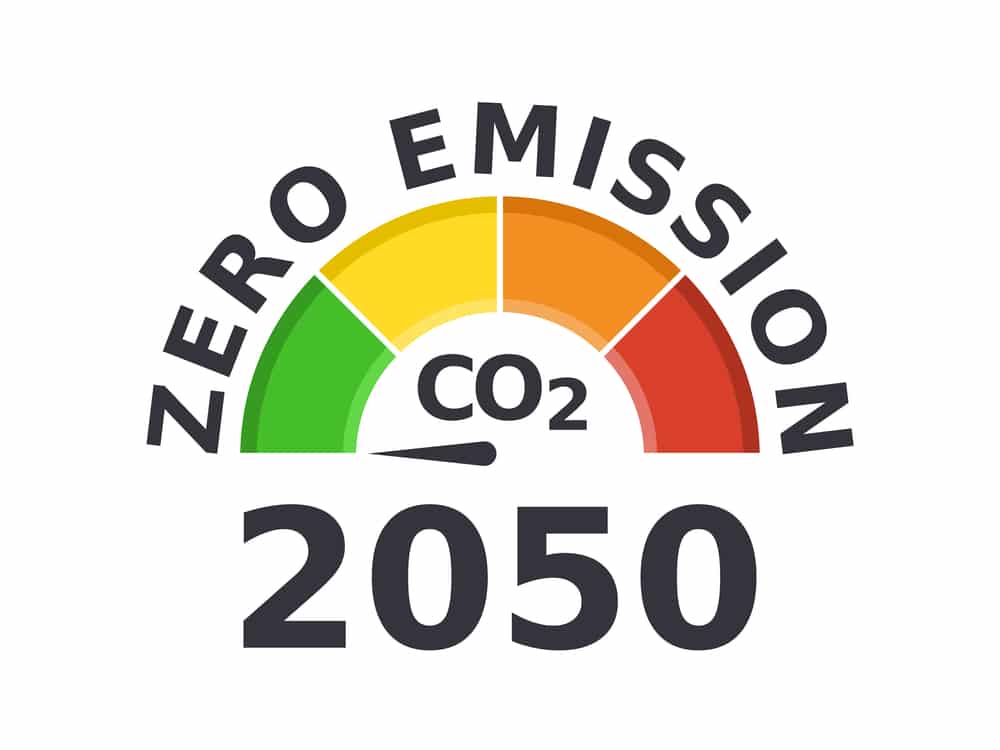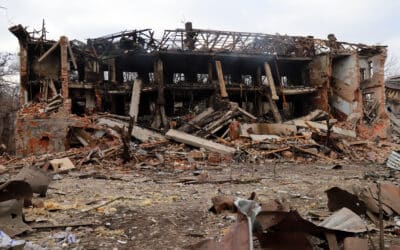Climate change and the environment are becoming top issues in most developed countries. People know that humans are contributing to climate change, so they demand action with more done to preserve our very fragile planet. In the United Kingdom, politicians are pushed more and more every day to put in place measures to achieve net zero emissions as soon as possible and at any cost.
If you want to achieve it by 2050, the cost of net zero varies from a gross figure of £1.4 trillion to a much better sounding £12 billion a year. The lower estimates usually come to fruition through, shall we say, a fair number of wild assumptions. Those advocating the smaller estimates genuinely believe that if the government backs most (if not all) the right decisions perfectly, then the United Kingdom will neatly reach its net zero target by 2050.
Let’s leave aside the fact that history tells us that governments are fundamentally focused on short-term meaning, and the long-term decisions needed for net zero will necessarily veer off course at some point. Instead we’ll assume that government will stay the course. The United Kingdom is not the huge contributor to carbon emissions that it once was. The UK has industrialized and no longer has a need to focus its industry on carbon heavy sectors. It is the developing world that is seeking to claw itself out of the state of nature and into a world of great abundance.
This is where Robinson Crusoe steps in.
For those readers that are unaware, Robinson Crusoe is a fictional character who finds himself alone on a deserted island with no knowledge of the modern world. For the purposes of this article, we will assume, instead of being alone, Crusoe is accompanied by 99 other people so as to better represent a country that finds itself undeveloped (as compared to countries like the United Kingdom), which describes a lot of the highly polluting countries. Crusoe and the others need to focus on their immediate needs of survival, so they go about satisfying their highest valued preferences on their value scales like food, water, and shelter. This can take a long time since they need to not only acquire food, water, and shelter right now but they need to be secure, in their own minds, that if they were to move to satisfying other preferences that the production of food, water, and shelter would not cease and drop them back into the state of nature. Furthermore, the consistent production of these higher valued goods and services is not sufficient, as shown by the behavior of countries which have gone through industrialization. A lot of the time, individuals want a significantly higher quality of these goods and services than they can guarantee straight away, adding an even more significant amount of time onto the process of satisfying less important preferences.
I explain this because it is not just Crusoe and his fellow islanders that act this way, but every single country that attempts to pull itself out of the state of nature. It will be difficult for those who live in conditions that allow us to care about the state of our environment to say to those living in unimaginable conditions that they are not allowed to care about improving their quality of life. “You there, peasant! How dare you ruin the planet polluting the way you do; we want you to stop for the betterment of the planet!” This is hyperbolic since, in reality, this would be couched in politically correct language. But from the perspective of those receiving the message, it is very easy to understand that we could easily come across as arrogantly benevolent. We have taken advantage of the process of industrialization to make our quality of life something unknown for the whole of human history, yet we are turning around and suggesting to others that they should not attempt the same. The reality is that we have no intention of reversing our progress and instead seek policies that will prevent progress for others who need it most.
We should be much more sympathetic to the people of these developing countries; it is a noble and righteous act to improve your own lot in life, but we seem to show no sympathy for their plight at all. We have developed so most people alive today in countries like the United Kingdom and United States have no experience living in the conditions the average individual does in a developing country. We know nothing of the anxiety of not knowing if a member of our household will come back from work or not. We know nothing of the despair of knowing that if we injure ourselves, we may not receive the necessary healthcare to get working again.
It is completely impractical for those who believe the planet will soon go past a tipping point to focus their energies entirely on developed countries since it is the developing countries that are polluting so heavily in the present. They should be focusing on these developing countries, but they usually deflect and say that the developed countries should be leading the way. Again, if the tipping point is indeed as close as they believe it to be, why focus on the countries that will have a minimal impact on your goal? They show great jubilation when governments reach understandings like the Paris Climate agreement, sometimes even criticizing them for not going far enough. Here we see that, in practice, they really are attempting to prevent those in harsh conditions from pulling themselves out as fast as they can, even if they say different in public discussions.
It is through this logic that we learn that Crusoe and his community do not hate the environment; they simply want to reach a point where it is feasible for them to start caring about the environment. Government policies and international agreements that seek to limit progress towards that point are fundamentally anti-human and when it comes to real world application, are massively hypocritical, and inefficient. We should let the developing nations be free to chase after our quality of life. Humans are an engine of innovation. Through our advancements we have managed to drastically reduce the effects the harsh nature of our world has on our daily lives. I have zero doubt that the human mind, without constraints placed on it by malevolent actors, will engineer long term plans to deal with the side effects of clawing our way out of the state of nature.

































